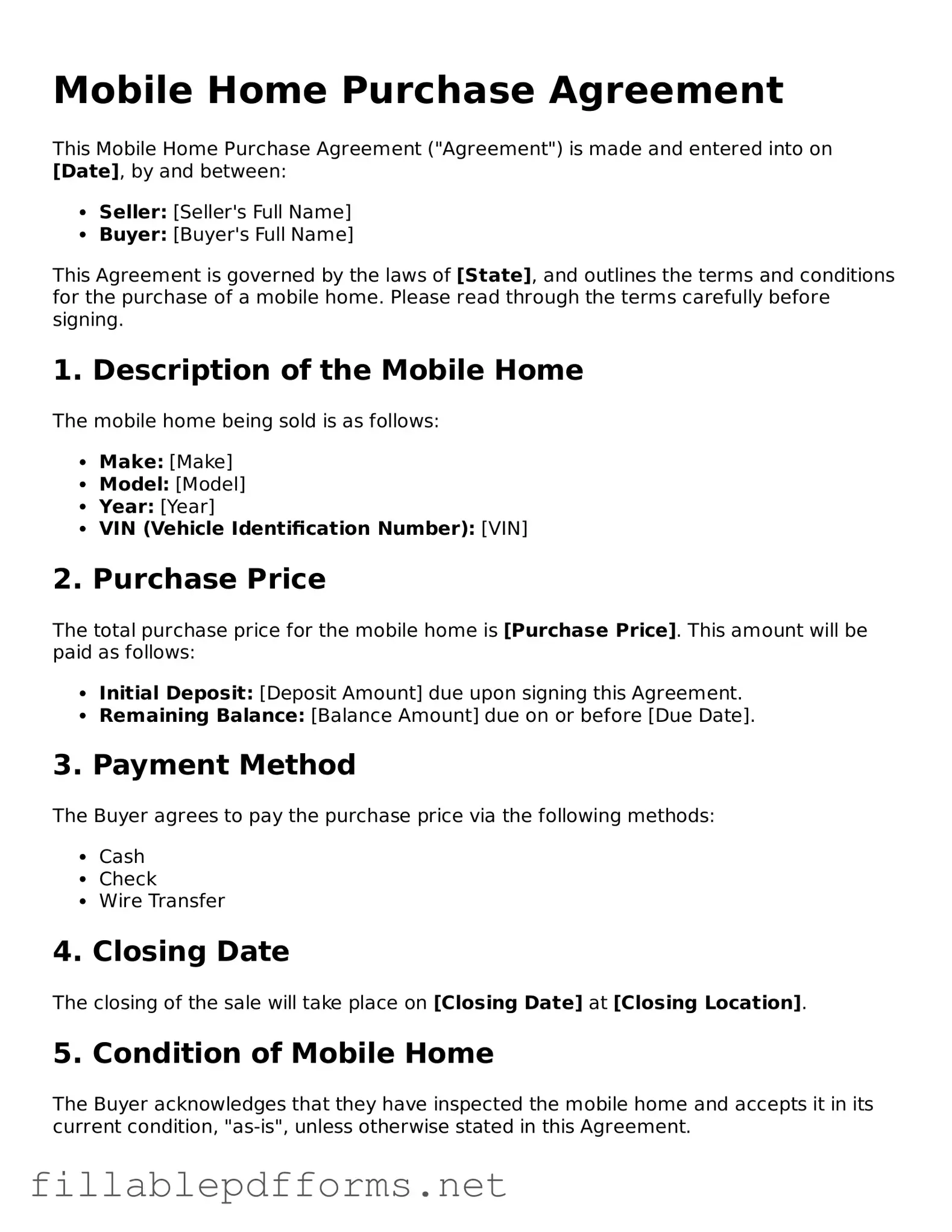Blank Mobile Home Purchase Agreement Template
The Mobile Home Purchase Agreement form is a legal document that outlines the terms and conditions of buying a mobile home. This agreement serves to protect both the buyer and seller by detailing the obligations of each party involved in the transaction. Understanding this form is crucial for ensuring a smooth and legally compliant purchase process.
Launch Editor Here

Blank Mobile Home Purchase Agreement Template
Launch Editor Here

Launch Editor Here
or
▼ Mobile Home Purchase Agreement PDF
Almost there — finish the form
Complete Mobile Home Purchase Agreement online fast — no printing, no scanning.